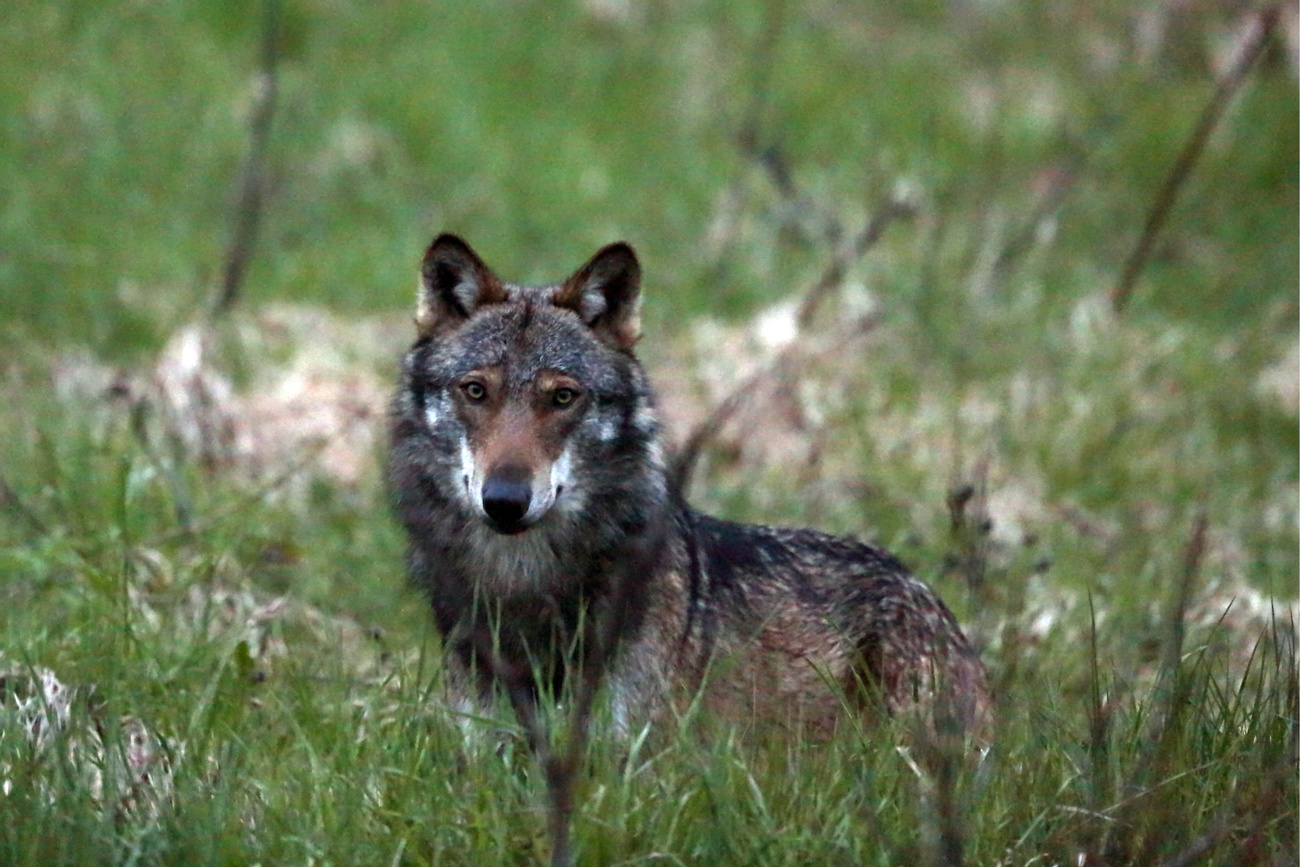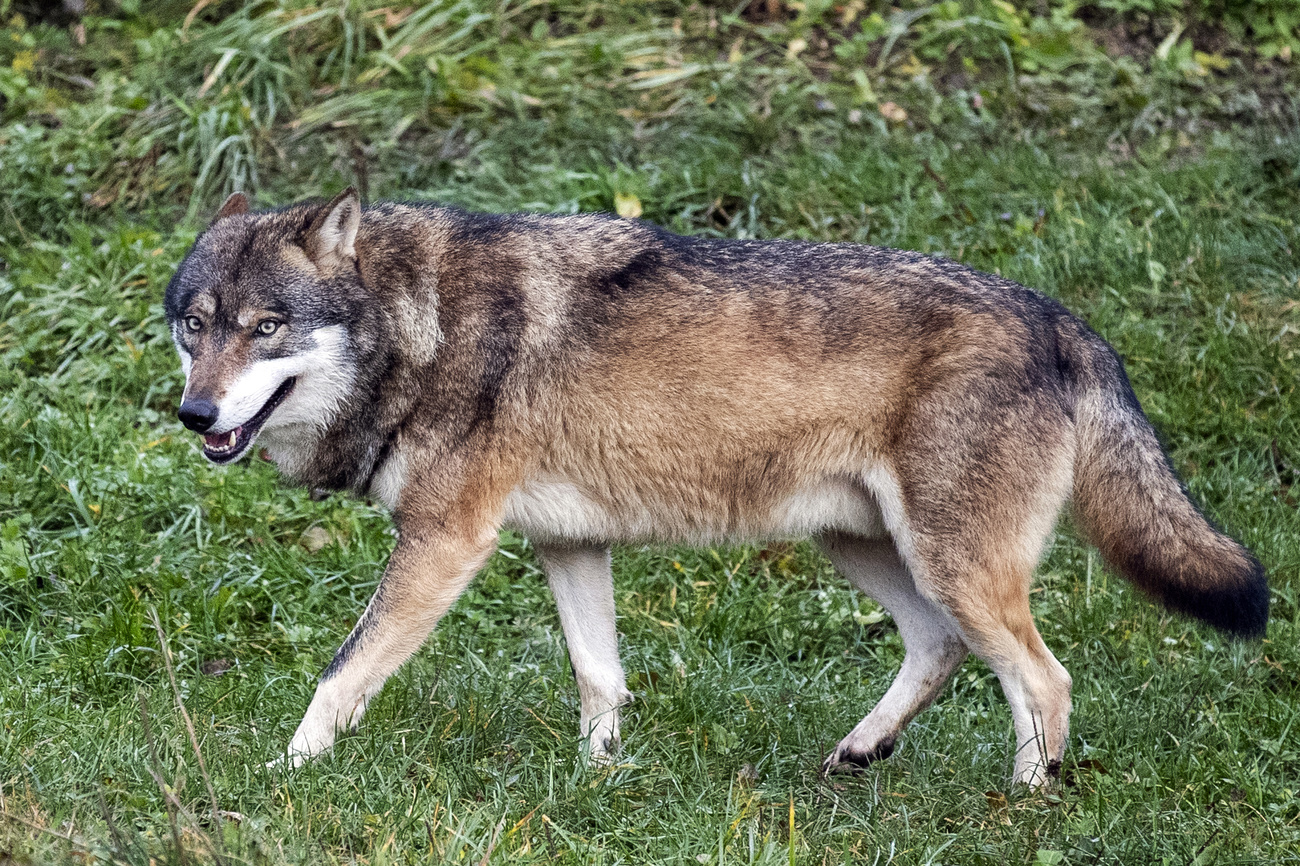
Swiss wolf culls suspended until court reaches verdict

Two Swiss cantons have been told to refrain from shooting wolves until a court passes judgement on complaints issued by nature conservation groups.
Cantons Valais and Graubünden wanted to continue planned wolf culls whilst the Federal Administrative Court deliberated the legal challenge to the hunts. But on Friday, the court confirmed the suspensive effect for wolf shooting. Valais and Graubünden are not allowed to continue wolf hunting in certain areas for the time being.

More
Wolf crackdown in Switzerland: a sign of what’s to come in Europe?
As long as the Federal Administrative Court has not decided on the complaints from three nature conservation organisations against the hunting of wolf packs in the cantons of Graubünden and Valais, no animals may be shot. The Federal Administrative Court rejected the requests to lift the suspensive effect.
As long as the Federal Administrative Court has not decided on the complaints from three nature conservation organisations against the hunting of wolf packs in the cantons of Graubünden and Valais, no animals may be shot. The Federal Administrative Court rejected the requests to lift the suspensive effect.
The two cantons ordered the preventive shooting of wolves in November 2023. They had previously received the relevant approval from the Federal Office for the Environment. In the canton of Valais, permission was given to cull wolf packs Nanz (at least five wolves), Le Fou-Isérables (at least four wolves) and Les Hauts-Forts (at least three wolves).
The canton of Graubünden received the green light for the elimination of the wolf packs Stagias (at least eight wolves), Vorab (at least ten wolves) and the planned shooting of two thirds of the young wolves from the Jatzhorn (three puppies) and Rügiul (two puppies) packs born in 2023. This emerges from the interim orders of the Federal Administrative Court that have now been published.
As is usually the case, the complaints from the nature conservation organisations Pro Natura, WWF Switzerland and Swiss Bird Protection have a suspensive effect. This means that the legal consequence ordered by an order does not occur for the time being.
The purpose of the suspensive effect is to prevent the complaining party from feeling the adverse effects of the order until its legality has been decided, as the court writes.
In December, the two cantons applied to lift the suspensory effect due to the “high extent of the damage”. The Federal Administrative Court did not grant this request.
It notes that in the Valais case, the nature conservation organisations credibly demonstrated that possible protective measures had not been taken in the past. This would significantly reduce the feared high number of livestock injuries. This significantly puts into perspective the need to withdraw the suspensive effect.
It is also important that the wolf is an animal protected by law. The number of 16 farm animals killed despite livestock guard dogs is relatively small and is not enough to remove the suspensory effect.
Regarding the Graubünden application, the Federal Administrative Court writes that the controversial population regulation could lead to the shooting of 23 wolves. This contrasts with the five livestock deaths that are likely to have occurred last year despite herd protection measures. The feared damage is neither factually nor financially completely unreasonable.

More
Swiss government authorises shooting of 12 wolf packs
This news story has been written and carefully fact-checked by an external editorial team. At SWI swissinfo.ch we select the most relevant news for an international audience and use automatic translation tools such as DeepL to translate it into English. Providing you with automatically translated news gives us the time to write more in-depth articles. You can find them here.
If you want to know more about how we work, have a look here, and if you have feedback on this news story please write to english@swissinfo.ch.

In compliance with the JTI standards
More: SWI swissinfo.ch certified by the Journalism Trust Initiative



























You can find an overview of ongoing debates with our journalists here . Please join us!
If you want to start a conversation about a topic raised in this article or want to report factual errors, email us at english@swissinfo.ch.